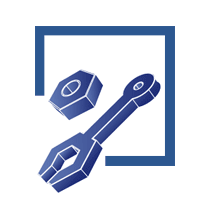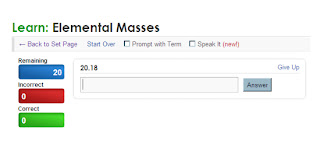Every truth has four corners: as a teacher I give you one corner, and it is for you to find the other three.
- Confucius -
My first inclination is to break into a tirade about my theory of teaching, the Three C's and building a culture of learning. And, how I do not believe memorization is learning. How if you memorize something, this does not mean you know what it is or how to utilize it. I would continue that I do not sit down and memorize the recipies in order to cook a meal. But if I cook the meal well enough a number of times the recipie becomes a part of my knowledge base. And, that the more times I cook the meal, the less often I need to refer to the recipie.
That is why I give all of my students a periodic table that I have created. I gathered ideas from the other chemistry teachers I work with as well as using information found on the various periodic tables available online and through science distributors like Fisher and Flinn and of courseI looked at a variety of periodic tables in textbooks. From all of this I designed a periodic table that is a tool that can be used by the students to successfully navigate their year of chemistry.
I allow my students to use their periodic table during all of their work throughout the year, including in class work, quizzes, tests, homework, online assignments, the entire workload for the year. Invaribly if the students use a this tool enough, the information on the periodic table will become part of their knowledge base and eventually they will use the most repetitive information without referring to the table as the year progresses. Of course, the elements that are used most often like oxygen, carbon, hydrogen, nitrogen sodium and chlorine, are the elements that become part of the students knowledge base. How often, really, do we use Praseodynium [59 Pr - 140.91amu] or Erbium [ 68 Er - 167.26amu] or in the course of our lives?
Therefore, my answer is a resounding NO!!!! I do not have my students memorize the periodic table. I do however, expect them to master the use of the periodic table as a problem solving tool throughout their year in chemistry and beyond.






